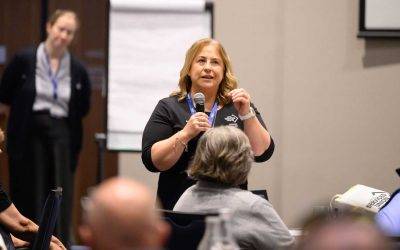The Early Childhood Education and Care
Pay Rise
It’s time for our ECEC workers to get the recognition they deserve!
The Early Childhood Education and Care
Pay Rise
It’s time for our ECEC workers to get the recognition they deserve!
YOU DESERVE YOUR PAY RISE
The Federal Government has funded a wage increase for Early Childhood Education and Care (ECEC) workers in local government… but there’s a catch.
Your employer has to apply for the funding and amend a workplace agreement before you can receive it. If they don’t act, you miss out!
USU members fought to make sure local government ECEC workers were included in this funding, now we need your help to make sure every eligible worker gets their pay rise.
Councils signed on to Retention Payment
Councils still need to sign on to Retention Payment
Backpay Deadline Extended – More Time to Secure What You’re Owed!
The government has extended the deadline to 30 September 2025 for employers to apply for backpay to 2 December 2024 under the Worker Retention Payment. Read more about what this means here.
Backpay Deadline Extended – More Time to Secure What You’re Owed!
The government has extended the deadline to 30 September 2025 for employers to apply for backpay to 2 December 2024 under the Worker Retention Payment. Read more about what this means here.
.
Workers Retention Payment Video Explainer
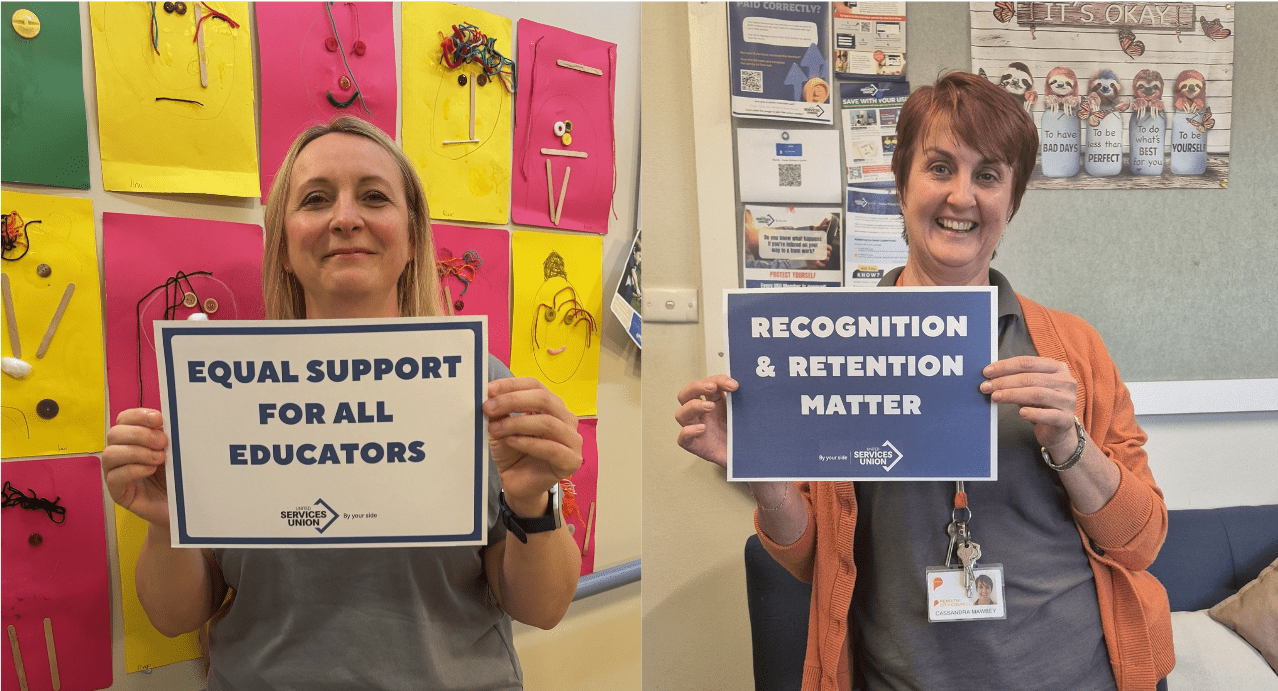
Frequently
Asked
Questions
There is a lot of misinformation around at the moment so we’ve compiled some information about the grant and common questions.
Organisers and the industrial officer working on this campaign will also be visiting centres and Councils to support and assist workers with the award.
What is the Worker Retention Payment?
The worker retention payment is a fully federally funded optional pay increase for all workers in the ECEC space, from support staff to educators and directors, for up to two years.
The payment is being provided to childcare subsidy eligible long day care and out of school hour care centres across all of Australia where the centre has an eligible industrial instrument in place and meets the conditions for the payment.
For council ECEC workers, this means your Council has to opt in by signing on to the new Splinter Award and completing an application through the Department of Education. Councils must also agree to cap childcare fees at 4.4% for 2025 and by an amount to be set by the Department of Education in 2026. Councils may request an alternative fee cap where the current fee cap would have a serious impact on a service’s financial viability. Applications for an alternative fee cap will be considered on a case-by-case basis.
Which Councils have signed on?
- Albury City Council
- Armidale Regional Council
- Bathurst Regional Council
- Bayside Council
- Bega Valley Shire Council
- Blacktown City Council
- Bogan Shire Council
- Byron Shire Council
- Cabonne Shire Council
- Campbelltown City Council
- Canterbury-Bankstown Council
- Central Coast Council
- City of Canada Bay
- City of Parramatta
- Cobar Shire Council
- Coolamon Shire Council
- Cumberland City Council
- Eurobodalla Shire Council
- Fairfield City Cluncil
- Georges River Council
- Glen Innes Severn Council
- Greater Hume Council
- Inner West Council
- Lachlan Shire Council
- Lane Cove City Council
- Leeton Shire Council
- Liverpool City Council
- Liverpool Plains Shire Council
- Lockhart Shire Council
- Moree Plains Shire Council
- Newcastle City Council
- Northern Beaches Council
- Penrith City Council
- Randwick City Council
- Singleton Council
- Snowy Valleys Council
- Sutherland Shire Council
- Tamworth Regional Council
- The Hills Shire Council
- Upper Hunter Shire Council
- Waverley Council
- Warrumbungle Shire Council
- Waverley Council
- Willoughby City Council
- Wollondilly Shire Council
Contact us and we will check your Council has implemented your increase correctly.
What does my employer need to do to be eligible?
The first condition to be eligible is that Council have a compliant industrial instrument guaranteeing the pay rise for the length of the grant which runs until 30 November 2026. The USU with LGNSW has successfully created a Splinter Award Agreement that complies with the federal Department of Education’s conditions. Councils that sign on to the Award will then need to complete the grant application. The application can be challenging so the USU is here to help Councils with the application to ensure that workers get the payment as soon as possible.
Once the grant is provided there will be various reporting obligations that Councils will have to meet to remain eligible for the grant. The USU will be liaising with Councils across NSW to assist Council in meeting their obligations and ensuring workers receive the money they are entitled to.
Councils will also be required to cap the fees that they charge parents for the duration of the payment. For 2025, centres will be able to increase fees up to 4.4%. For 2026, the fee cap will be determined according to the new Childcare Service Cost Index which is published by the Australian Bureau of Statistics.
How much money will I actually get?
The Worker Retention Payment is intended to give workers a 15% pay rise to the Award minimums under the Children’s Services Award over the course of two years. Workers will receive up to a 10% increase from 2 December 2024 and a 5% increase from 1 December 2025.
If during this period, the Fair Work Commission raises the minimum hourly rates during its 2025/26 Annual Wage Review, workers will still be eligible to receive the worker retention payment. The worker retention payment will be based on the new minimums following the Fair Work Commission’s Annual Wage Review.
Any pay increases workers receive from changes to the Local Government Award, such as the 3% pay rise that the USU fought to get for all Council employees, will still be received by workers. The increase under the Local Government Award will offset some of the increases under the Children Services Award to keep pay increases in the public and private sectors at comparable levels.
The increase from 1 December 2025 will be a dollar increase for all workers equal to 5% of the award minimum at that time, including any changes to the Award minimum by the Fair Work Commission.
My Council has signed on to the Award, when will I receive the increase?
Applications for the grant commenced on 8 October 2024 with the payments to start from January 2025. If your employer did not sign on prior to December 2024 the pay will be back dated to December 2024 if they complete their application by 30 June 2025.
If your employer did not lodge their application by 30 June 2025, you will still be eligible for the payment, but it won’t be backdated, instead you will just receive the payment from the date the application was approved to 30 November 2026 when the grant ends. So, if your employer misses the 30 June deadline you could miss out on 6 months or more of increased pay that you are entitled to.
The Department of Education grant guidelines state that applications will be assessed within two months of receiving a correctly completed application. Once a Council’s application is approved the Department will transfer the money to Council’s nominated bank account, so payments can get started. We do not have information on exact processing times, but as more information becomes available, we will be updating this page.
My Council has not signed the Award, can I still access the payment?
Unfortunately, if a Council decides not to sign on to the Award, council employees working in the ECEC sector will not be eligible for the payments under the Worker Retention Payment. The only way to access the funds is to get Councils on board, and the USU is working hard to make sure that every worker gets this well-deserved pay increase.
I am already paid above the award, am I eligible for the pay increase?
Yes, even if you are already paid above the award minimum you will still see an increase in your wages if your Council signs on to the Splinter Award. Workers who are paid above the award will receive a fixed increase equal to 15% over the Award minimum rather than as a percentage of their earnings. For example, a level 4.1 room leader with a diploma will receive a $3.20 increase regardless of whether they are paid over the award or not.
Click here to see a table showing the dollar increases employees will see at each level.
What about other benefits or entitlements?
Entitlements that are based on the salary workers receive, such as superannuation contributions, penalty rates, leave loading, etc will be calculated using the rate of pay that includes the pay increase. If employers do not calculate these benefits based on the new salaries under the Splinter Award, they will be in breach of the grant conditions and may be required to repay the funds. If you have any questions about your entitlements or are concerned you aren’t getting what you are entitled reach out to us through the form at the bottom of this page.
What does this actually mean for workers?
It means that if you are on the award minimums under the Children’s Services Award for Educators, support staff, and centre management, or the Educational Services (Teachers) Award for ECTs you will see a 15% increase in your salary over the course of the grant.
If you are already being paid over the minimum, as we know a lot of council ECEC workers are, you will not receive a set percent increase in your wages, rather you will get a dollar increase equal to 15% over the award minimum for your level of qualifications and years of experience.
For example:
Jen is a new educator with a certificate III working at a Council that has opted into the award and completed their grant application. She is paid the minimum for a Level 1.1 Children’s Services Employee, $24.10 per hour. From 2 December 2024 to 30 November 2025, Jen’s salary will go up to $26.51; a $2.41 increase. Jen will also receive the 3% annual pay increase that the USU negotiated on behalf of all local government employees as well as the increase from the FWC’s Annual Wage Review.
Sarah is also a certificate III educator working at a Centre and has the qualifications and experience of a Level 1.1 worker. Sarah is paid $27 per hour. Under the Splinter Award Sarah’s pay will increase to $29.41 per hour; a $2.41 increase. Workers not paid at the award minimum will see their pay increase by an amount equal to the dollar increase in the award minimum. Sarah will also receive the 3% annual pay increase the USU negotiated on behalf of all local government employees as well as the increase from the FWC’s Annual Wage Review.
Faria is a certificate III educator who works at a Council that has opted to not sign on to the Splinter Award. Faria will not receive any of the WRP increase and will only receive the annual pay increase the USU has negotiated on behalf of workers.
Click here to see a table showing the dollar increases employees will see at each level.
Does my employer have to pay the grant funding to workers?
Yes, employers are only permitted to use the grant funds to increase workers’ salaries. The grant also allows for the grant being used to cover eligible on-costs arising from provider workers the increase such as superannuation contributions, employee entitlements, leave loading, etc. Certain other on-costs may be considered on a case-by-case basis, but any on-costs associated with giving workers the increase can only be paid using grant funds after workers have received the relevant pay increases.
My Council has signed onto the Award but I’m not sure I am being paid the right amount?
Beyond pressuring Councils to sign onto the Award the USU is also going to be working to monitor the award. The USU will be sending out surveys to centres where workers can provide us with their details to determine if they are getting paid correctly. At any time throughout the term of the grant you can reach out to the USU to determine if you are receiving everything you’re entitled to.
What happens after 30 November 2026?
The Worker Retention Payment at this time is only funded until 30 November 2026 and the payment only applies until 30 November 2026. So after 30 November grant funding will cease. At that time, Councils can either continue to pay the wage increase or stop the pay increase.
The USU is working to not only ensure that every Council ECEC worker receives the payment but keeps the payment.
What can I do to help?
Workers can only access the payment if their Council opts in to the payments and completes an application.
The USU has a dedicated team working to make sure that every worker possible is going to get this well-deserved pay increase however we need the support of workers to get Councils on board. This can involve speaking to other staff about the award, encouraging them to join the union, speaking with parents and petitioning Council.
The team managing this campaign will be holding a series of online workshops, meetings and Q&As to discuss with workers how we can work together to get every Council on board.
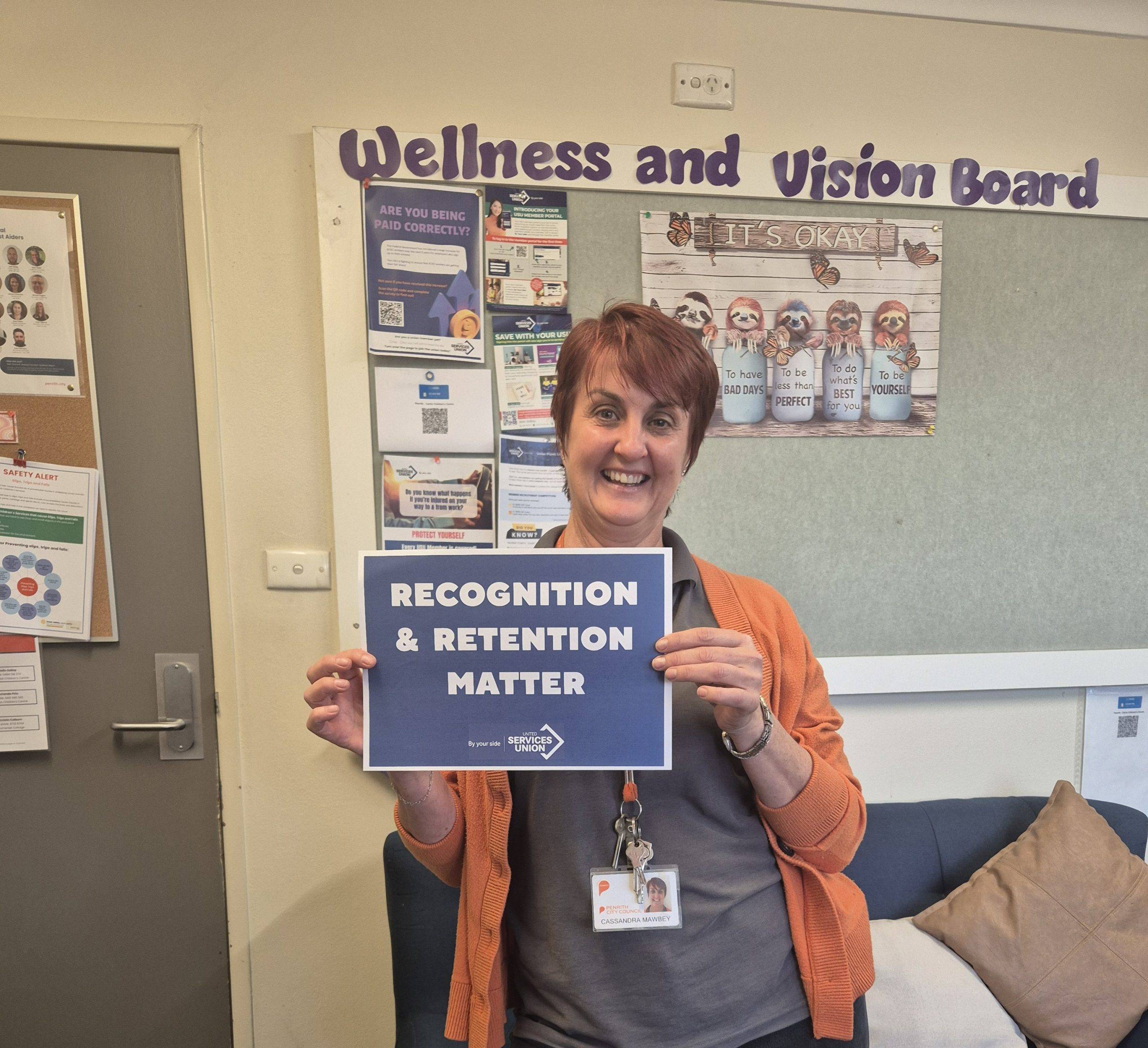

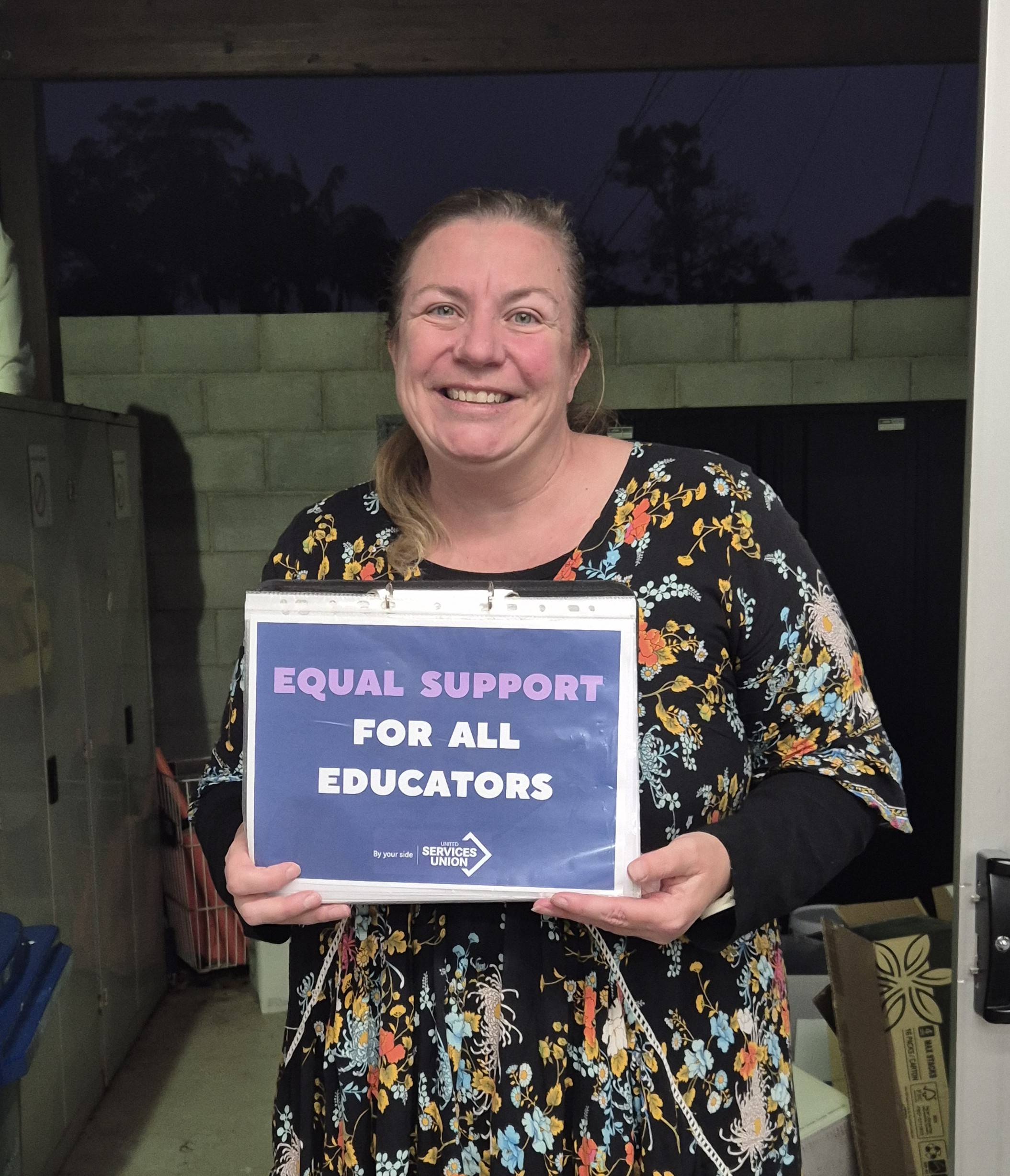
Frequently
Asked
Questions
There is a lot of misinformation around at the moment so we’ve compiled some information about the grant and common questions.
Organisers and the industrial officer working on this campaign will also be visiting centres and Councils to support and assist workers with the award.
What is the Worker Retention Payment?
The worker retention payment is a fully federally funded optional pay increase for all workers in the ECEC space, from support staff to educators and directors, for up to two years.
The payment is being provided to childcare subsidy eligible long day care and out of school hour care centres across all of Australia where the centre has an eligible industrial instrument in place and meets the conditions for the payment.
For council ECEC workers, this means your Council has to opt in by signing on to the new Splinter Award and completing an application through the Department of Education. Councils must also agree to cap childcare fees at 4.4% for 2025 and by an amount to be set by the Department of Education in 2026. Councils may request an alternative fee cap where the current fee cap would have a serious impact on a service’s financial viability. Applications for an alternative fee cap will be considered on a case-by-case basis.
Which Councils have signed on?
- Albury City Council
- Armidale Regional Council
- Bathurst Regional Council
- Bayside Council
- Blacktown City Council
- Bogan Shire Council
- Byron Shire Council
- Cabonne Shire Council
- Campbelltown City Council
- Canterbury-Bankstown Council
- Central Coast Council
- City of Canada Bay
- City of Parramatta
- Cobar Shire Council
- Coolamon Shire Council
- Cumberland City Council
- Eurobodalla Shire Council
- Fairfield City Cluncil
- Georges River Council
- Glen Innes Severn Council
- Greater Hume Council
- Inner West Council
- Lachlan Shire Council
- Lane Cove City Council
- Leeton Shire Council
- Liverpool City Council
- Liverpool Plains Shire Council
- Moree Plains Shire Council
- Northern Beaches Council
- Penrith City Council
- Randwick City Council
- Singleton Council
- Snowy Valleys Council
- Sutherland SHire Council
- Tamworth Regional Council
- Upper Hunter Shire Council
- Wollondilly Shire Council
Contact us and we will check your Council has implemented your increase correctly.
What does my employer need to do to be eligible?
The first condition to be eligible is that Council have a compliant industrial instrument guaranteeing the pay rise for the length of the grant which runs until 30 November 2026. The USU with LGNSW has successfully created a Splinter Award Agreement that complies with the federal Department of Education’s conditions. Councils that sign on to the Award will then need to complete the grant application. The application can be challenging so the USU is here to help Councils with the application to ensure that workers get the payment as soon as possible.
Once the grant is provided there will be various reporting obligations that Councils will have to meet to remain eligible for the grant. The USU will be liaising with Councils across NSW to assist Council in meeting their obligations and ensuring workers receive the money they are entitled to.
Councils will also be required to cap the fees that they charge parents for the duration of the payment. For 2025, centres will be able to increase fees up to 4.4%. For 2026, the fee cap will be determined according to the new Childcare Service Cost Index which is published by the Australian Bureau of Statistics.
How much money will I actually get?
The Worker Retention Payment is intended to give workers a 15% pay rise to the Award minimums under the Children’s Services Award over the course of two years. Workers will receive up to a 10% increase from 2 December 2024 and a 5% increase from 1 December 2025.
If during this period, the Fair Work Commission raises the minimum hourly rates during its 2025/26 Annual Wage Review, workers will still be eligible to receive the worker retention payment. The worker retention payment will be based on the new minimums following the Fair Work Commission’s Annual Wage Review.
Any pay increases workers receive from changes to the Local Government Award, such as the 3% pay rise that the USU fought to get for all Council employees, will still be received by workers. The increase under the Local Government Award will offset some of the increases under the Children Services Award to keep pay increases in the public and private sectors at comparable levels.
The increase from 1 December 2025 will be a dollar increase for all workers equal to 5% of the award minimum at that time, including any changes to the Award minimum by the Fair Work Commission.
My Council has signed on to the Award, when will I receive the increase?
Applications for the grant commenced on 8 October 2024 with the payments to start from January 2025. If your employer did not sign on prior to December 2024 the pay will be back dated to December 2024 if they complete their application by 30 June 2025.
If your employer did not lodge their application by 30 June 2025, you will still be eligible for the payment, but it won’t be backdated, instead you will just receive the payment from the date the application was approved to 30 November 2026 when the grant ends. So, if your employer misses the 30 June deadline you could miss out on 6 months or more of increased pay that you are entitled to.
The Department of Education grant guidelines state that applications will be assessed within two months of receiving a correctly completed application. Once a Council’s application is approved the Department will transfer the money to Council’s nominated bank account, so payments can get started. We do not have information on exact processing times, but as more information becomes available, we will be updating this page.
My Council has not signed the Award, can I still access the payment?
Unfortunately, if a Council decides not to sign on to the Award, council employees working in the ECEC sector will not be eligible for the payments under the Worker Retention Payment. The only way to access the funds is to get Councils on board, and the USU is working hard to make sure that every worker gets this well-deserved pay increase.
I am already paid above the award, am I eligible for the pay increase?
Yes, even if you are already paid above the award minimum you will still see an increase in your wages if your Council signs on to the Splinter Award. Workers who are paid above the award will receive a fixed increase equal to 15% over the Award minimum rather than as a percentage of their earnings. For example, a level 4.1 room leader with a diploma will receive a $3.20 increase regardless of whether they are paid over the award or not.
Click here to see a table showing the dollar increases employees will see at each level.
What about other benefits or entitlements?
Entitlements that are based on the salary workers receive, such as superannuation contributions, penalty rates, leave loading, etc will be calculated using the rate of pay that includes the pay increase. If employers do not calculate these benefits based on the new salaries under the Splinter Award, they will be in breach of the grant conditions and may be required to repay the funds. If you have any questions about your entitlements or are concerned you aren’t getting what you are entitled reach out to us through the form at the bottom of this page.
What does this actually mean for workers?
It means that if you are on the award minimums under the Children’s Services Award for Educators, support staff, and centre management, or the Educational Services (Teachers) Award for ECTs you will see a 15% increase in your salary over the course of the grant.
If you are already being paid over the minimum, as we know a lot of council ECEC workers are, you will not receive a set percent increase in your wages, rather you will get a dollar increase equal to 15% over the award minimum for your level of qualifications and years of experience.
For example:
Jen is a new educator with a certificate III working at a Council that has opted into the award and completed their grant application. She is paid the minimum for a Level 1.1 Children’s Services Employee, $24.10 per hour. From 2 December 2024 to 30 November 2025, Jen’s salary will go up to $26.51; a $2.41 increase. Jen will also receive the 3% annual pay increase that the USU negotiated on behalf of all local government employees as well as the increase from the FWC’s Annual Wage Review.
Sarah is also a certificate III educator working at a Centre and has the qualifications and experience of a Level 1.1 worker. Sarah is paid $27 per hour. Under the Splinter Award Sarah’s pay will increase to $29.41 per hour; a $2.41 increase. Workers not paid at the award minimum will see their pay increase by an amount equal to the dollar increase in the award minimum. Sarah will also receive the 3% annual pay increase the USU negotiated on behalf of all local government employees as well as the increase from the FWC’s Annual Wage Review.
Faria is a certificate III educator who works at a Council that has opted to not sign on to the Splinter Award. Faria will not receive any of the WRP increase and will only receive the annual pay increase the USU has negotiated on behalf of workers.
Click here to see a table showing the dollar increases employees will see at each level.
Does my employer have to pay the grant funding to workers?
Yes, employers are only permitted to use the grant funds to increase workers’ salaries. The grant also allows for the grant being used to cover eligible on-costs arising from provider workers the increase such as superannuation contributions, employee entitlements, leave loading, etc. Certain other on-costs may be considered on a case-by-case basis, but any on-costs associated with giving workers the increase can only be paid using grant funds after workers have received the relevant pay increases.
My Council has signed onto the Award but I’m not sure I am being paid the right amount?
Beyond pressuring Councils to sign onto the Award the USU is also going to be working to monitor the award. The USU will be sending out surveys to centres where workers can provide us with their details to determine if they are getting paid correctly. At any time throughout the term of the grant you can reach out to the USU to determine if you are receiving everything you’re entitled to.
What happens after 30 November 2026?
The Worker Retention Payment at this time is only funded until 30 November 2026 and the payment only applies until 30 November 2026. So after 30 November grant funding will cease. At that time, Councils can either continue to pay the wage increase or stop the pay increase.
The USU is working to not only ensure that every Council ECEC worker receives the payment but keeps the payment.
What can I do to help?
Workers can only access the payment if their Council opts in to the payments and completes an application.
The USU has a dedicated team working to make sure that every worker possible is going to get this well-deserved pay increase however we need the support of workers to get Councils on board. This can involve speaking to other staff about the award, encouraging them to join the union, speaking with parents and petitioning Council.
The team managing this campaign will be holding a series of online workshops, meetings and Q&As to discuss with workers how we can work together to get every Council on board.
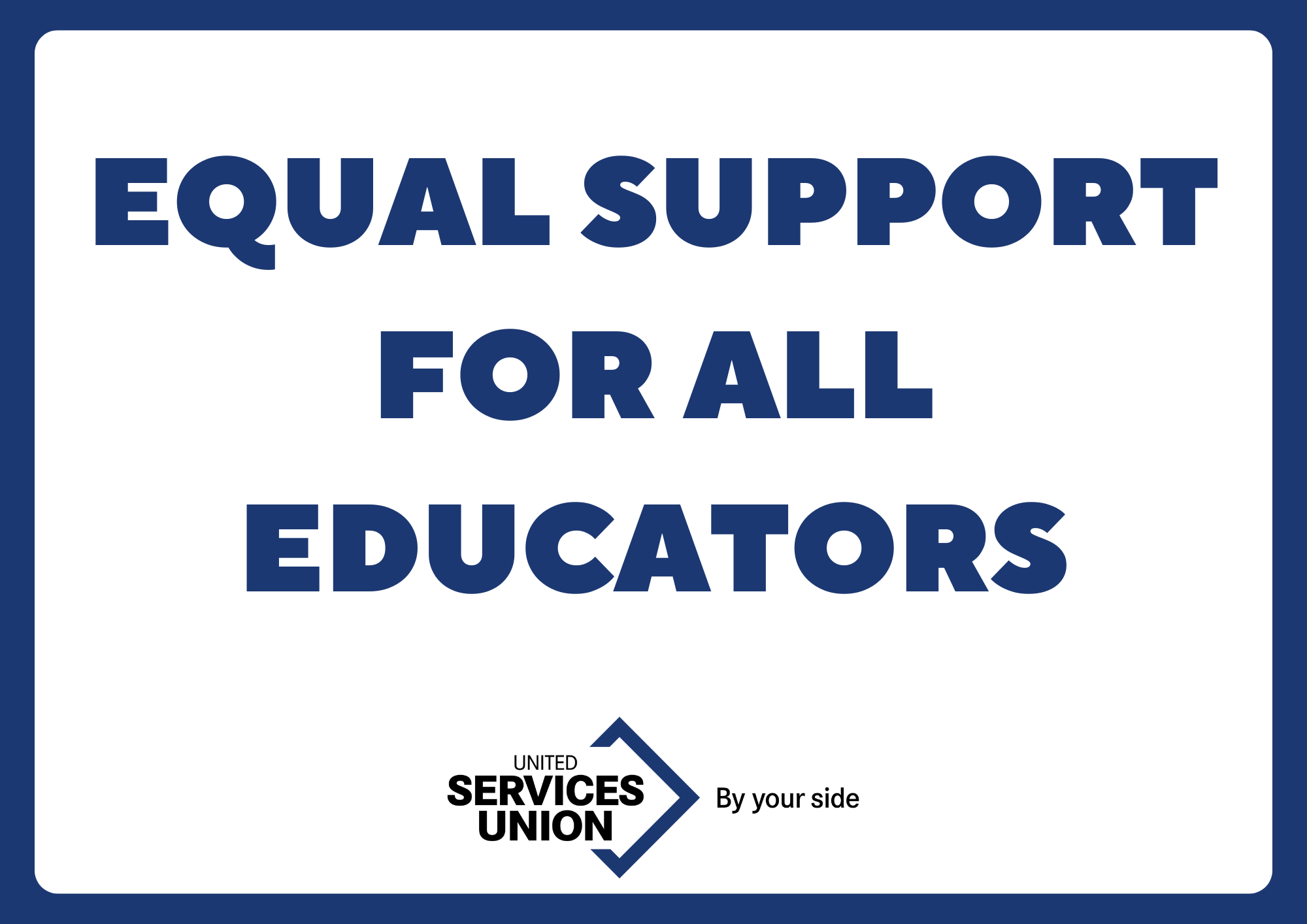
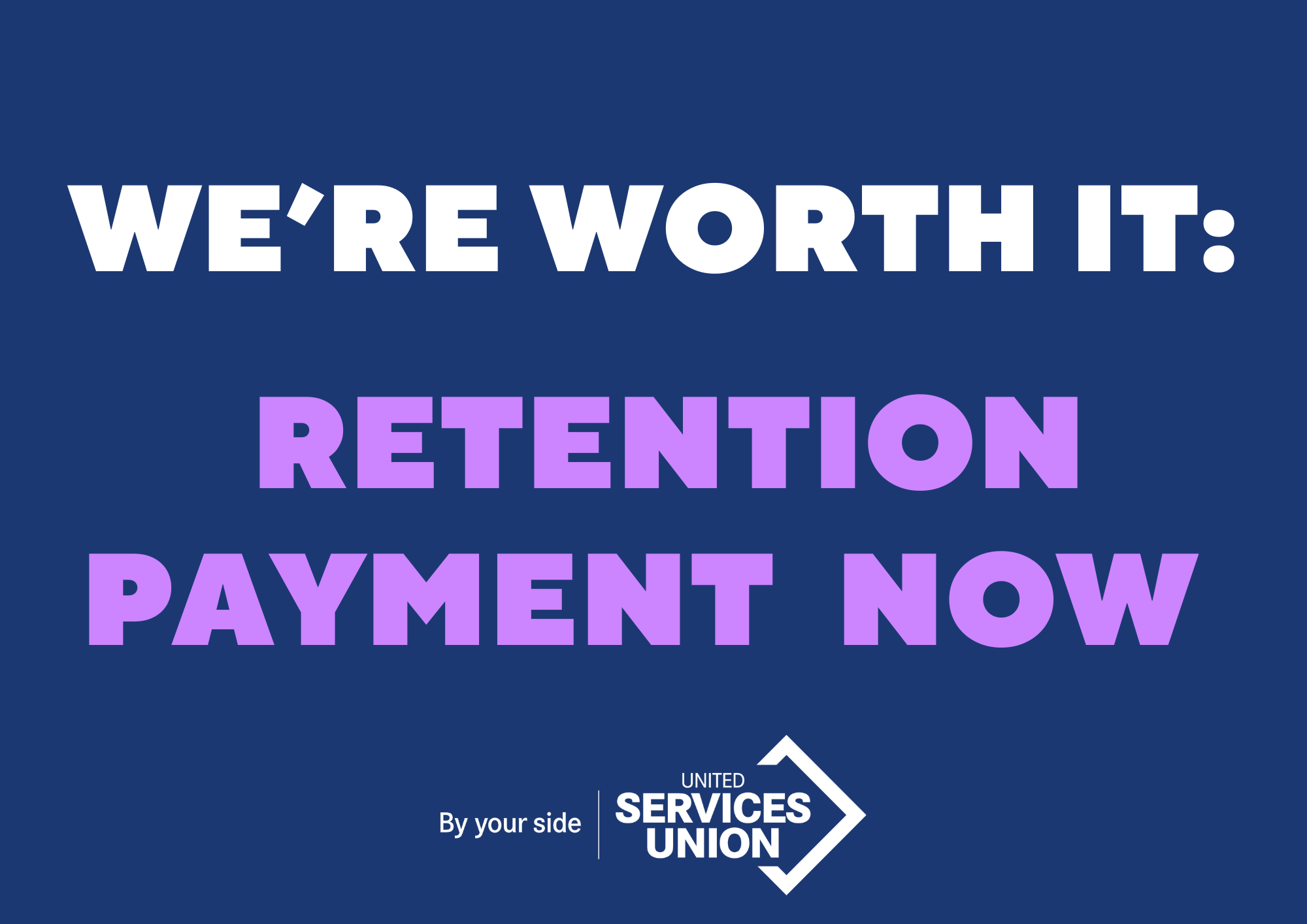
Questions? Need help?
Contact the USU – we’re by your side every step of the way. Just email us here.
Latest from the Blog
Payroll deduction authority
I, ___________________ authorise ___________________________ to deduct from my salary the sum of _______________ on a Fortnightly basis commencing as soon as practicable and for each subsequent year and pay such sum to the United Services Union. I authorise you to...
President’s report: Thumbs up for another great year
If you are anything like me your head will be spinning because we are only a week out from Christmas. How is it possible? I swear I was writing a 2024 wrap up not that long ago and here we are on the verge of another year! Looking back over 2025 I can once again feel...
Check out our journal news! Trust me it’s worth it!
Members, if you had told me on the 1st January that I would be sitting in the General Secretary’s chair today I would have thought you were mad! I have had the great honour, alongside several of my colleagues, to act in this position while Graeme Kelly has taken...
Guess what! Riverside Resort rebuild in sight! Check out the latest!
Ever wondered why our wonderful Riverside Resort at Port has taken so long to re-open? Many members have asked when they can book their next holiday there. Check out this great update from Manager Admin and Finance Erik Jansen who has been working through the...

